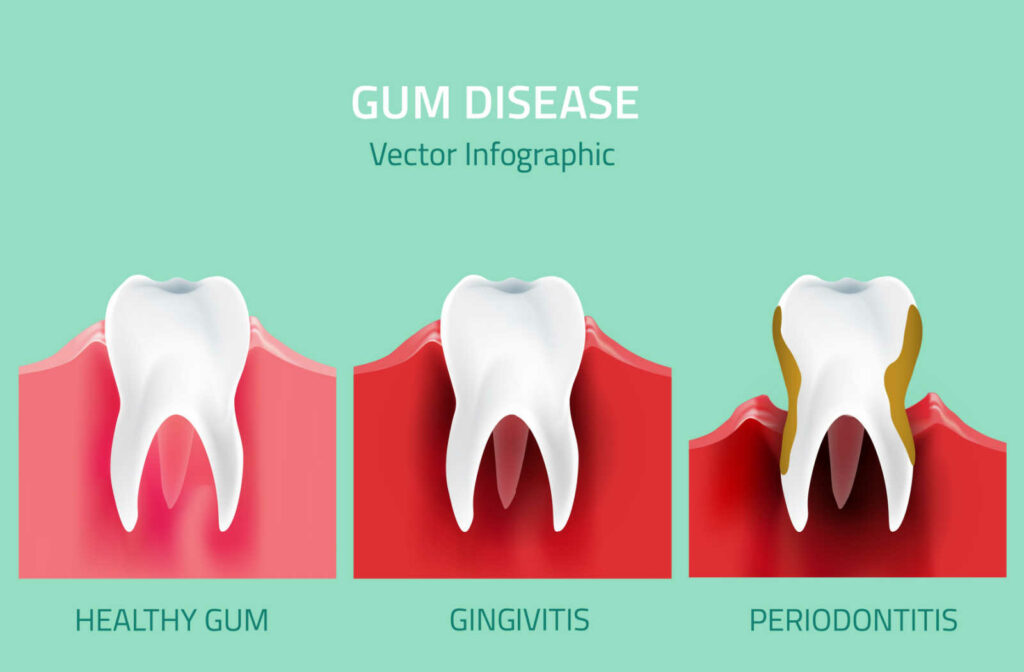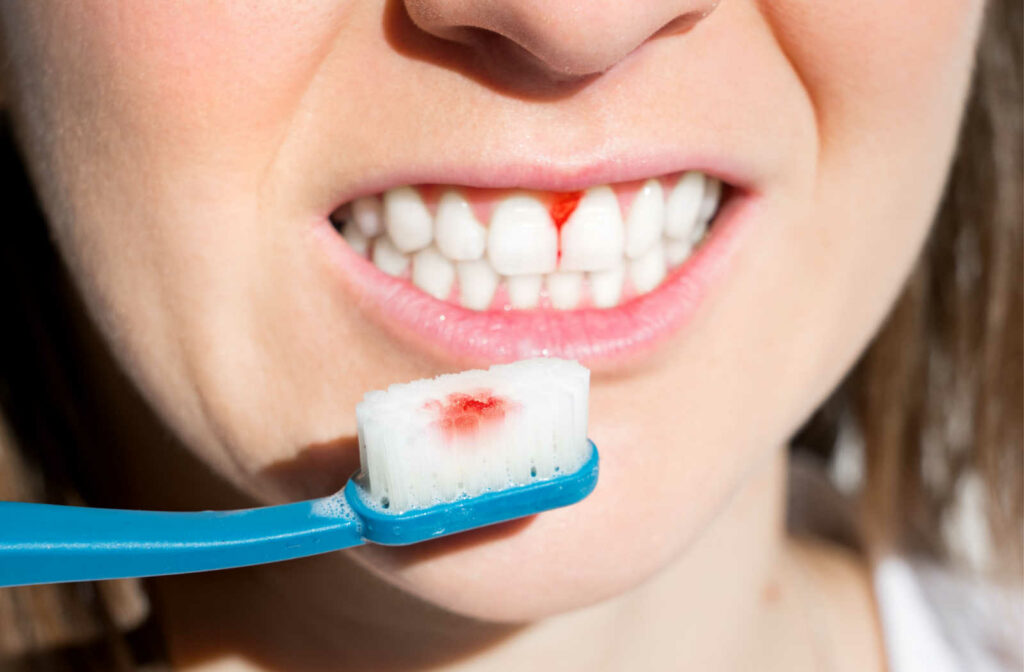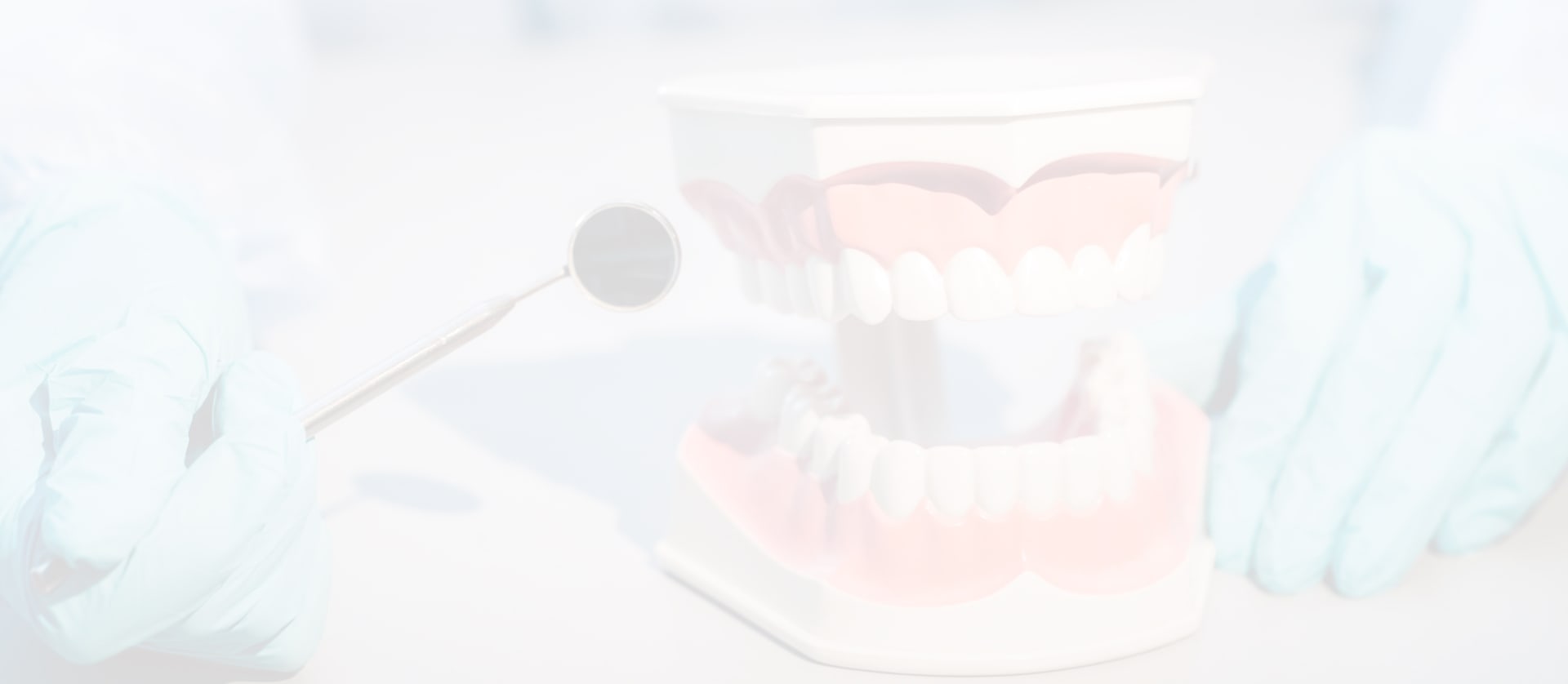The trouble with many things in our body is that some conditions can lead to more serious concerns if left untreated. For example, if gingivitis is left untreated, it may lead to a more severe condition called periodontitis (gum disease). But with improved oral hygiene and the help of professional dental cleaning, it’s possible to reverse the early effects of gingivitis.
It’s possible that you may not even notice the early signs of gingivitis while brushing or flossing your teeth. This is another great reason why it’s important to see your dentist every 6 months or as they recommend. Prompt treatment typically offers the most effective solution for a condition like gingivitis.
What Is Gingivitis?
Plaque is a naturally occurring biofilm that contains bacteria. If it’s not cleaned off your teeth, it hardens and builds up, becoming tartar. This buildup can cause your gums to swell up or become red and inflamed, resulting in gingivitis. If this is left untreated, gum disease could result.
Though it sounds painful, gingivitis is often painless or has minimal discomfort. This is a significant reason it’s easy to miss if you’re not getting regular dental exams.
If your dentist discovers gingivitis during the exam, they can often begin treatment during that same appointment. Prompt treatment can usually stop the symptoms from progressing into gum disease.
Symptoms
The symptoms a person experiences could vary depending on the severity of the condition, but they may include:
- Inflamed gums
- Noticeable plaque buildup
- Red or swollen gums
- Gums that bleed easily
Treatments
The first line of treatment for gingivitis is typically cleaning. This may include a professional cleaning by a dental hygienist, with instructions to maintain a clean mouth at home. Some other potential treatments your dentist may recommend include:
- Salt water treatment: Because it’s a natural disinfectant, the saltwater rinse helps your body fight any infection that’s beginning. Additionally, a saltwater mouthwash will help further clean your mouth by removing food debris and improving your breath.
- Various types of mouthwash: There are various ingredients, such as lemongrass oil, aloe vera, tea tree oil, and sage, that all possess different healing properties or effects that may be beneficial in treating gingivitis.
- Oil pulling: This is an ancient practice of swishing oil in your mouth to rid it of bacteria and improve your mouth’s overall health. In addition to helping get rid of gingivitis, oil pulling can also prevent bad breath, reduce your risk of developing cavities, and reduce the amount of bacteria in your mouth.

Preventing Gingivitis
Practicing good oral hygiene is the best and most effective way to reduce your risk of developing gingivitis or gum disease. But there are a few other ways that you may be able to keep your mouth feeling fresh and healthy.
Visit Your Dentist
Even the most careful brushers and flossers aren’t immune to problems in their mouth. Because gingivitis is often painless, you may not even notice it starting. So, regular visits to the dentist are a great way of avoiding the condition.
Stop Smoking
There’s no shortage of information available on the negative health effects of smoking on our bodies. According to the CDC, your risk of developing gum disease doubles as a smoker. Also, gum disease treatment may not be as effective for smokers as non-smokers.
Drink Lots of Water
Water isn’t simply for staying hydrated. Many municipalities treat their water with fluoride, so it strengthens our teeth. Additionally, water helps wash away food and other debris that plaque-causing bacteria love to eat. All these things help reduce the risk of developing gingivitis.
Complications of Gum Disease
As its name suggests, gum disease begins in your gums. Bacteria that are left uncleaned begin to infect the tissue. If this infection isn’t treated, it can eventually spread to the bones of your jaw. When this happens, needing a root canal or tooth loss are both common complications of gum disease. Plus, researchers have linked gum disease to a higher risk of some conditions, including heart disease, diabetes, or premature birth weight.
Include Your Dentist in Your Oral Care
Gingivitis may not seem like a serious condition at first, more so an inconvenience than anything else. The problem is what it can develop into, which can be other mouth-related problems. Cavities are another prime example of an issue that should be treated right away.
If you’re due for your next exam and cleaning or are concerned with something, contact our Ottawa dental office today. The professional team is happy to answer your questions and get you in to see the dentist.










